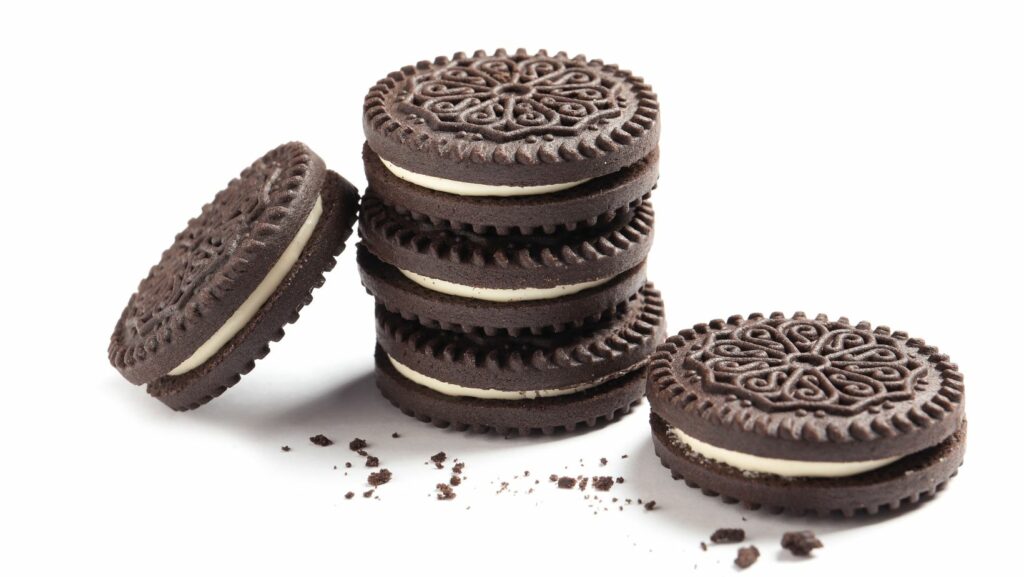This article delves into the Oreo cookies nutrition facts, providing a detailed breakdown of what you’re actually consuming with every bite. It’s not just about indulgence; it’s about understanding the balance between taste and health. So, let’s unwrap the mystery behind these black-and-white delights and discover what makes an Oreo, an Oreo.
Oreo Cookies Nutrition Facts
Unmasking the Oreo cookies nutrition facts turns out to be quite telling. Let’s dive deeper and explore the minutiae of what an average Oreo cookie packs in when it comes to calories and overall nutritional composition.
Calories and Macronutrient Breakdown
 An Oreo cookie, much like any processed snack, possesses a notable amount of calories. In fact, a typical serving of three cookies contains around 160 calories, as per the National Nutrient Database for Standard Reference, Release 28. Evaluating the macronutrient breakdown, it’s apparent that a portion of these calories stems from the carbs, specifically at about 25 grams per three-cookie serving. Further inclusion of around 2 grams of protein and 7 grams of fat completes the caloric equation.
An Oreo cookie, much like any processed snack, possesses a notable amount of calories. In fact, a typical serving of three cookies contains around 160 calories, as per the National Nutrient Database for Standard Reference, Release 28. Evaluating the macronutrient breakdown, it’s apparent that a portion of these calories stems from the carbs, specifically at about 25 grams per three-cookie serving. Further inclusion of around 2 grams of protein and 7 grams of fat completes the caloric equation.
When dissecting the sugar and fat content of Oreo cookies, it becomes clear that sugar holds a dominating position. With approximately 14 grams of sugar in a three-cookie serving, it’s evident that sugar forms a substantial portion of the total calories. As for fat, primarily found in the form of saturated fat, a serving sits at around 3.3 grams. Bear in mind that high intake of both these components, if left unchecked, opens the door for various health concerns.
Understanding the Ingredients of Oreos
The Main Components
Oreo’s main components play essential roles in its distinctive taste and texture. Enriched flour forms the base of the cookie, crafted from wheat flour, niacin, reduced iron, thiamine mononitrate, riboflavin, and folic acid. These components offer specific nutrients that contribute to the cookie’s nutritional profile.
Sugar, the second main component, provides sweetness, while high fructose corn syrup and invert sugar add viscosity and retain moisture. The cocoa in Oreos gives the classic chocolaty taste, while leavening agents generate fluffiness. Finally, Soy lecithin emulsifier aids in the blending of ingredients, and salt enhances the overall flavor.
Additives and Preservatives
In addition to the main components, Oreos include additives and preservatives for maintaining shelf life and quality. Artificial flavoring, for instance, ensures the cookie’s persistent taste, while chocolate derives from processed and alkalized sources.
Palm and/or canola oil serve as sources of fats and help preserve the cookie. Lastly, Oreos use preservatives – BHT (Butylated Hydroxytoluene) and PGPR (Polyglycerol Polyricinoleate) – all scrutinized and approved by food safety authorities. However, it’s noteworthy that consuming these additives and preservatives moderately is essential.
Health Considerations When Eating Oreos
The Impact on Blood Sugar Levels
 A single serving of Oreo cookies, typically three pieces, contains 14 grams of sugar. Consumption of such quantities inevitably spikes blood sugar levels. According to the American Diabetes Association, foods high in added sugars, like these popular cookies, significantly increase blood sugar if not complemented by an active lifestyle or balanced diet. Thus, regular intake of Oreos without corresponding health measures could lead to diabetes over time.
A single serving of Oreo cookies, typically three pieces, contains 14 grams of sugar. Consumption of such quantities inevitably spikes blood sugar levels. According to the American Diabetes Association, foods high in added sugars, like these popular cookies, significantly increase blood sugar if not complemented by an active lifestyle or balanced diet. Thus, regular intake of Oreos without corresponding health measures could lead to diabetes over time.
Moreover, Oreo cookies pack a notable caloric punch, averaging around 160 calories per serving. Corroborating with a study published in the ‘American Journal of Clinical Nutrition,’ increased consumption of processed foods high in sugar and fat content, such as Oreos, often results in weight gain. It advises that individuals maintain their consumption of such foods to an occasional treat rather than a daily indulgence to avert potential weight issues.
Must Know About Oreo Cookies Nutrition Facts
Oreo cookies are undeniably a favorite treat for many. Their unique taste and texture, derived from ingredients such as enriched flour and sugar, make them hard to resist. However, it’s crucial to remember the Oreo cookies nutrition facts. High in sugar and fat, Oreos can impact blood sugar levels and potentially contribute to weight gain if not consumed in moderation. So, go ahead and enjoy your Oreos, but remember to do so in moderation and as part of a balanced diet. It’s the key to maintaining a healthy relationship with your favorite snacks.

